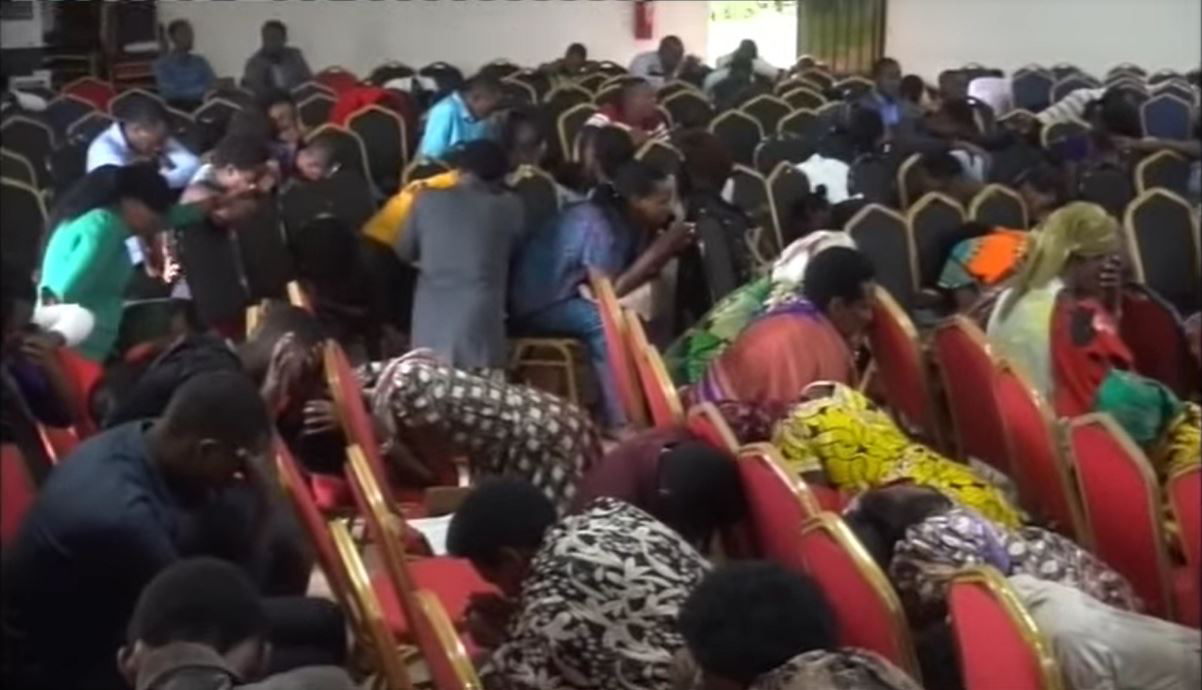
KIGALI, Rwanda (BP) — Nearly 7,000 churches and mosques remain closed in Rwanda months after the government began shutting down houses of worship, the Rwandan government has reported.
 The government continues to close houses of worship, citing various building code violations and requirements that pastors complete theological education at accredited schools, World Watch Monitor reported July 27.
The government continues to close houses of worship, citing various building code violations and requirements that pastors complete theological education at accredited schools, World Watch Monitor reported July 27.
Requirements continue to mount since new laws in the country were first enacted in February, World Watch reported. These requirements reportedly include such measures as the mandatory installment of a certain canvas ceiling considered a fire hazard.
Only 13.8 percent of more than 8,000 houses of worship closed since March 1 have managed to meet new regulations and reopen, a government leader said on the pro-government KT Radio July 15.
In an official July 28 statement on “Regulating Faith Based-Organizations in Rwanda,” the Rwanda Governance Board (RGO) said “the closures do not infringe on freedom to worship, but rather address the alarming proliferation of places of worship in dilapidated and unhygienic conditions, as well as troubling behavior of unscrupulous individuals masquerading as religious leaders.” The government accused religious leaders of insulting women and other religions, and forcing followers to fast “to the point of death from starvation.”
But an analyst requesting anonymity told World Watch, “on checking which churches were included (in closures), all churches are suffering the same fate, and … even churches considered luxurious for local standards have had to close.” A lack of freedom of the press hampers reporting in the country rated as “not free” in the 2018 Freedom of the World report by Freedom House.
In the latest government report, the RGO said “the right to religion … guaranteed in Article 37 of the Rwandan Constitution” of 2003, amended in 2015, has led to the founding of too many churches and the establishment of too many religious denominations.
In Kigali, where 700 churches were closed on March 1 alone, 1,176 villages were served by about 2,000 prayer houses including 1,400 churches. The typical village population includes 80 to 150 families, the RGO said.
“I don’t think we have as many boreholes [deep wells],” Rwandan President Paul Kagame has said regarding the number of churches in Kigali. “Do we even have as many factories? This has been a mess!”
Closed churches are finding it difficult if not impossible to make changes the government requires, World Watch said.
Regulations not originally enforced or enacted are now being imposed on churches in the country that had a 2017 GDP per capita of only $710, based on the 2018 Freedom in the World report. By comparison, the U.S. had a 2017 per capital GDP of $59,500, according to established statistics.
Among requirements, toilets must be a certain distance from a church’s entrance, church access roads and campuses must be paved, churches must have lightning conductors, and inside walls and ceilings must be plastered and painted.
Regarding education, schools can only teach theology if they also teach science and technology, World Watch reported, and pastors must have degrees from accredited schools.
Six pastors were arrested with the original closures, although all have since been released. See Baptist Press’ earlier story here.
















